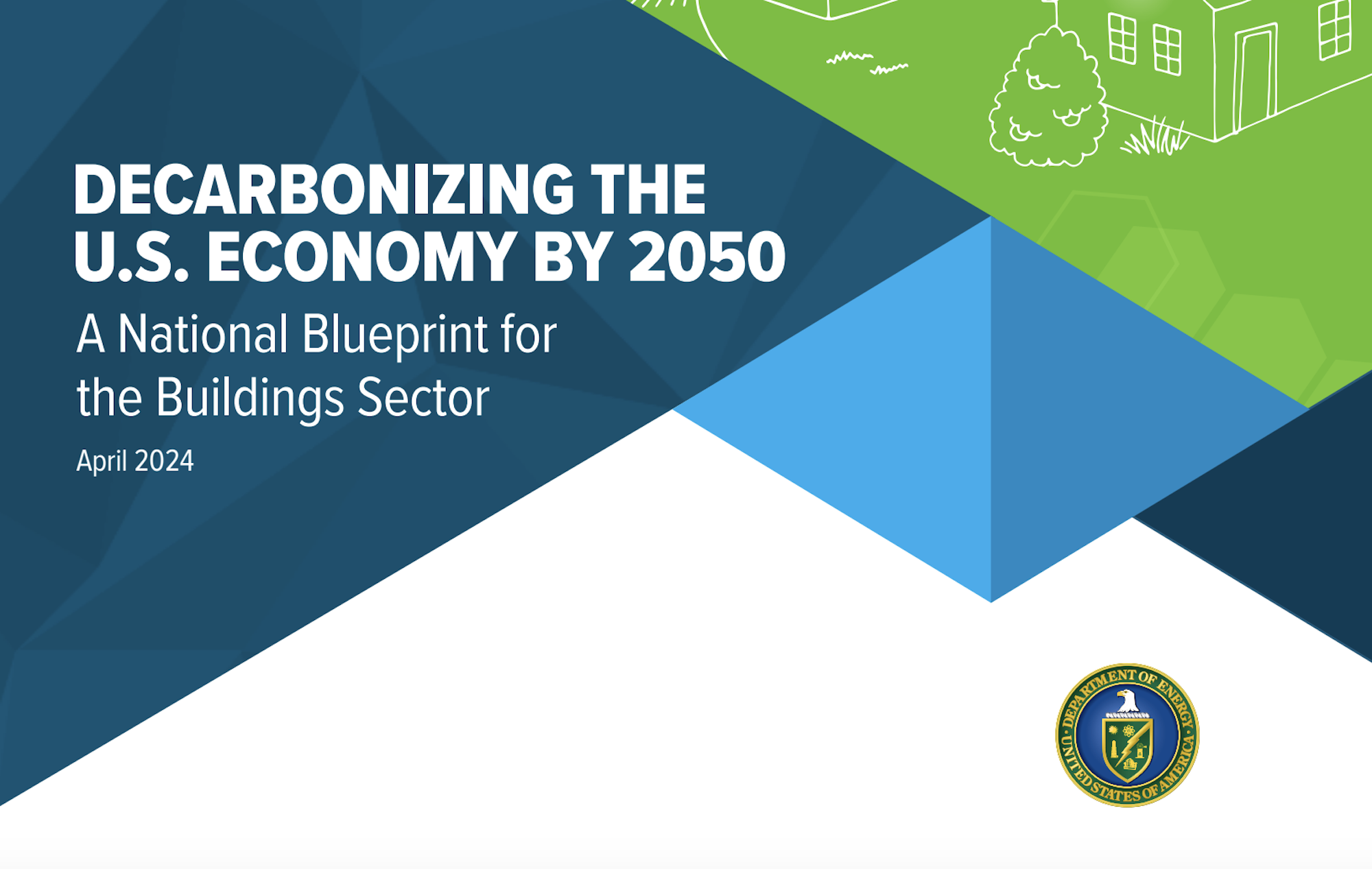The Biden Administration recently released “Decarbonizing the U.S. Economy by 2050: A National Blueprint for the Buildings Sector,” a comprehensive plan to reduce greenhouse-gas (GHG) emissions from buildings by 65% by 2035 and 90% by 2050.
The Blueprint is the first sector-wide strategy for building decarbonization developed by the federal government. It outlines ways to reduce energy in homes, schools, and workplaces.
To reach the emissions reduction targets for the buildings sector, the Blueprint sets four strategic objectives:
• Increasing building energy efficiency
• Accelerating onsite emissions reductions
• Transforming the interactions between buildings and the electricity grid
• Minimizing the emissions from producing, transporting, installing, and disposing of building materials
Each objective has specific performance targets and market, policy, and technology milestones to reach by 2035 and 2050. Meeting these targets will require accelerated deployment of a wide range of decarbonization and energy efficiency technologies. The Blueprint outlines coordinated federal actions that can increase the speed and scale of solutions deployments. Those actions include funding research and development to develop lower-cost technologies, expanding markets for low-carbon technologies, providing direct funding and financing, and supporting the development and implementation of emissions-reducing building codes and appliance standards.
The Department of Energy, a key player in the administration’s decarbonization drive, is focused on building innovations in three pivotal areas: building upgrades, efficient electrification, and smart controls.
Related Stories
Codes and Standards | Apr 28, 2021
Building-integrated solar power turns buildings into power plants
Multiple alternatives could replace or complement rack-mounted PV arrays.
Codes and Standards | Apr 27, 2021
Ten real estate groups sign on to New York State’s high-rise decarbonization challenge
Each signee commits to carbon neutrality in one or more high-rise buildings it owns.
Codes and Standards | Apr 26, 2021
Dozens of companies, organizations call for Congress to double Energy Star funding
Despite broad support, program’s budget has steadily declined in recent years.
Codes and Standards | Apr 22, 2021
Alabama fire chiefs oppose proposal to change school building code oversight
Bill would move code compliance control from state to local boards.
Codes and Standards | Apr 21, 2021
After dry winter, California ramps up wildfire prevention efforts
State to spend half a billion dollars on projects including making buildings more fire resistant.
Codes and Standards | Apr 20, 2021
U.S. electric grid is halfway to zero carbon
Other sectors including buildings lag power industry.
Codes and Standards | Apr 19, 2021
Failed landmark preservation effort in Chicago provides lessons for planners
Gentrification fears heightened among Pilsen neighborhood residents doomed ambitious preservation plan.
Codes and Standards | Apr 14, 2021
New Phase 1 Environmental Site Assessment standard debuts in 2021
Will affect 250,000 commercial real estate deals a year.
Codes and Standards | Apr 13, 2021
British Columbia moves to accelerate mass timber construction
Province funds demonstration projects as part of economic recovery.
Codes and Standards | Apr 12, 2021
WoodWorks and Think Wood release first Mass Timber Design Manual
Interactive collection of information on mass timber products, design best practices, taller wood construction and sustainability.

















